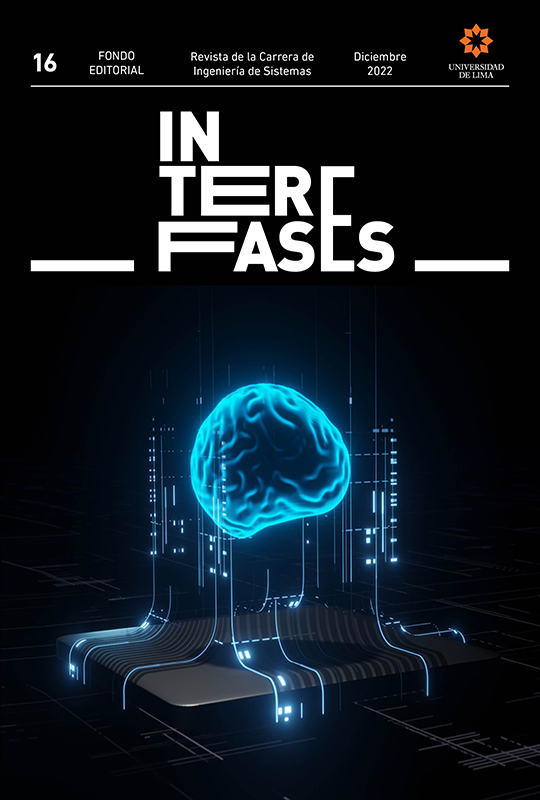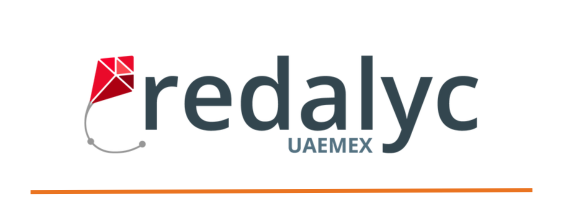Challenges and opportunities in data accessibility
DOI:
https://doi.org/10.26439/interfases2022.n016.5888Keywords:
accesibility, data, health, protection, ethicsAbstract
There is a great variety and amount of sensitive and valuable healthcare information that could be used to benefit people, but is not exploited due to limited access to data. This article aims to determine factors influencing data accessibility in private and public organizations through a literature review. Of the 300 related articles identified, 23 were included in this review. Among the resulting factors influencing information accessibility, the following stood out: open governments, health information systems, personal data protection laws, ethics in the use of medical information, and data lakes. Making health data more accessible would improve services and treatment plans, save state resources and promote education and research.
Downloads
References
Alsahafi, Y. A., Gay, V., & Khwaji, A. A. (2022). Factors affecting the acceptance of integrated electronic personal health records in Saudi Arabia: The impact of e-health literacy. Health Information Management Journal, 51(2), 98-109. https://doi.org/10.1177/1833358320964899
Avila-Garzon, C. (2020). Applications, methodologies, and technologies for linked open data: A systematic literature review. International Journal on Semantic Web and Information Systems, 16(3), 53-68. https://doi.org/10.4018/IJSWIS.2020070104
Bauer, D., Froese, F., Garcés-Erice, L., Giblin, C., Labbi, A., Nagy, Z. A., Pardon, N., Rooney, S., Urbanetz, P., Vetsch, P., & Wespi, A. (2021). Building and operating a large-scale enterprise data analytics platform. Big Data Research, 23. https://doi.org/10.1016/j.bdr.2020.100181
Boudreau LeBlanc, A., Williams-Jones, B., & Aenishaenslin, C. (2022). Bio-ethics and One Health: A case study approach to building reflexive governance. Frontiers in Public Health, 10. https://doi.org/10.3389/fpubh.2022.648593
Buhr, L., Schicktanz, S., & Nordmeyer, E. (2022). Attitudes toward mobile apps for pandemic research among smartphone users in Germany: National survey. JMIR MHealth and UHealth, 10(1). https://doi.org/10.2196/31857
Calva, M., & Piedra, N. (2020). Cycle of transformation of open and linked medical data to improve the training of health professionals. En Proceedings of the 15th Latin American Conference on Learning Technologies (LACLO) (pp. 1-10). https://doi.org/10.1109/LACLO50806.2020.9381158
Cohen, G., Gerke, S., & Kramer, D. B. (2020). Ethical and legal implications of remote monitoring of medical devices. The Milbank Quarterly, 98(4), 1257-1289.
Comandè, G., & Schneider, G. (2021). Can the GDPR make data flow for research easier? Yes it can, by differentiating! A careful reading of the GDPR shows how EU data protection law leaves open some significant flexibilities for data protection-sound research activities. Computer Law & Security Review, 41. https://doi.org/10.1016/j.clsr.2021.105539
Dunbar, E., Olsen, H. E., Salomon, E., Bhatt, S., Mutuku, R., Wasunna, B., Edwards, J., Kolko, B., & Holeman, I. (2021). Towards Responsible Data Practices in Digital Health: A case study of an open source community’s journey. En Extended Abstracts of the 2021 CHI Conference on Human Factors in Computing Systems (CHI EA ‘21) (artículo 42, pp. 1-8). Association for Computing Machinery. https://doi.org/10.1145/3411763.3443438
Eder, J., & Shekhovtsov, V. A. (2021). Data quality for federated medical data lakes. International Journal of Web Information Systems, 17(5), 407-426. https://doi.org/10.1108/IJWIS-03-2021-0026
Galeone, C., & Bonzi, R. (2020). Open data: Applications in social care and health. Statistica Applicata - Italian Journal of Applied Statistics, 32(2), 125-139. https://doi.org/10.26398/IJAS.0032-008
Gefenas, E., Lekstutiene, J., Lukaseviciene, V., Hartlev, M., Mourby, M., & Cathaoir, K. (2022). Controversies between regulations of research ethics and protection of personal data: Informed consent at a cross-road. Medicine, Health Care and Philosophy, 25(1), 23-30. https://doi.org/10.1007/s11019-021-10060-1
Healthcare Information and Management Systems Society. (2021). 2021 HIMSS Healthcare Cybersecurity Survey. https://www.himss.org/resources/himss-healthcare-cybersecurity-survey
Jones, K. H., Ford, E. M., Lea, N., Griffiths, L. J., Hassan, L., Heys, S., Squires, E., & Nenadic, G. (2020). Toward the development of data governance standards for using clinical free-text data in health research: Position paper. Journal of Medical Internet Research, 22(6). https://doi.org/10.2196/16760
Kandasamy, K., Srinivas, S., Achuthan, K., & Rangan, V. P. (2022). Digital healthcare - cyberattacks in Asian organizations: An analysis of vulnerabilities, risks, NIST perspectives, and recommendations. IEEE Access, 10, 12345-12364. https://doi.org/10.1109/ACCESS.2022.3145372
Keefer, P., & Scartascini, C. (2022). Confianza: la clave de la cohesión social y el crecimiento en América Latina y el Caribe. Banco Interamericano de Desarollo. http://dx.doi.org/10.18235/0003911
Laurent, A., Laurent D., & Madera, C. (2020). Data Lakes. John Wiley & Sons.
Open Data Charter. (2015). Carta Internacional de Datos Abiertos. https://opendatacharter.net/principles-es/
Pierce, R., & Evram, M. (2022). Getting it right: Implementing data protection in citizen science research. Insights: The UKSG Journal, 35. https://doi.org/10.1629/UKSG.538
Red Iberoamericana de Protección de Datos. (2019). Recomendaciones generales para el tratamiento de datos en la inteligencia artificial. https://www.redipd.org/sites/default/files/2020-02/guia-recomendaciones-generales-tratamiento-datos-ia.pdf
Rooney, S., Bauer, D., Garcés-Erice, L., Urbanetz, P., Froese, F., & Tomic, S. (2019). Experiences with managing data ingestion into a corporate datalake. En Proceedings - 2019 IEEE 5th International Conference on Collaboration and Internet Computing (CIC) (pp. 101-109). https://doi.org/10.1109/CIC48465.2019.00021
Shah, S. M., & Khan, R. A. (2020). Secondary use of electronic health record: Opportunities and challenges. IEEE Access, 8, 136947-136965. https://doi.org/10.1109/ACCESS.2020.3011099
The National Commission for the Protection of Human Subjects of Biomedical and Behavioral Research. (1979). The Belmont Report. Ethical principles and guidelines for the protection of human subjects of research. https://www.hhs.gov/ohrp/regulations-and-policy/belmont-report/read-the-belmont-report/index.html
Downloads
Published
Issue
Section
License
Authors who publish with this journal agree to the following terms:
Authors retain copyright and grant the journal right of first publication with the work simultaneously licensed under an Attribution 4.0 International (CC BY 4.0) License. that allows others to share the work with an acknowledgement of the work's authorship and initial publication in this journal.
Authors are able to enter into separate, additional contractual arrangements for the non-exclusive distribution of the journal's published version of the work (e.g., post it to an institutional repository or publish it in a book), with an acknowledgement of its initial publication in this journal.
Authors are permitted and encouraged to post their work online (e.g., in institutional repositories or on their website) prior to and during the submission process, as it can lead to productive exchanges, as well as earlier and greater citation of published work (See The Effect of Open Access).
Last updated 03/05/21






